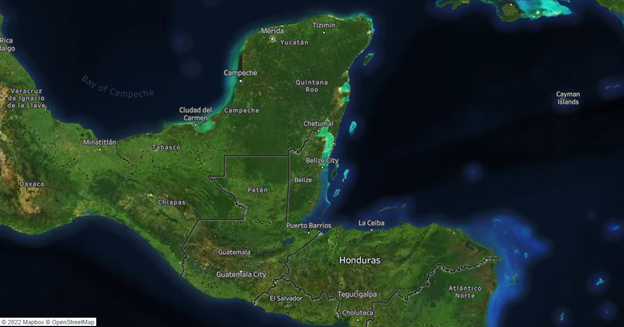
Violence continues to flare up around Mexico as the government continues to actively blunt American efforts to stem drug cartels’ efforts to ship drugs throughout the Americas. The US has been trying to stem the violence that comes from the drug trade as hundreds of thousands of Mexicans have either disappeared or killed in the violence.
This runs contrary to vast sections of the Mexican government and security sector that have been actively blocking American attempts to restrain cartels. America’s strategy to reduce the drug cartel’s violence has led to mass deaths, widespread dislocation of Mexicans, and tragic deaths throughout the country. But this effort has also led to fewer arrests of cartel members and rooting out corruption that has kept Mexico from reaching its full potential. This policy has done little to limit the amount of drugs that come into the country as the number of deaths in America rises but if the US and Mexico worked together, they might be able to eliminate the violence in Mexico.
The situation in Mexico has become so untenable that the Mexican government has taken a policy of not arresting cartel members and allowing them to operate freely in the country. These cartel members have formed parallel governments as they collect taxes, provide security for local residents, and fight other cartels trying to gain territory within the country.
Mexico’s stalling of the American security apparatus has not made the country safer. The Jalisco New Generation Cartel continues to fight the Sinaloa Cartel, provinces are turning into war zones, and Mexican women are disappearing at an alarming rate. Violence has even been seeping into tourist destinations that were spared violence early on in the drug war. Cities like Acapulco and Cancun have been wracked by violence by cartels fighting over territory which will blunt the number of tourists that visit these areas. Drug cartels are even corrupting security officials at all levels as illicit money has seeped through every part of the country. Everyone from the top cop in Mexico to local police forces are working with drug cartels.
As the cartels continue to spread to every sector of the country, they will spread violence wherever they gain control.

Yucatan Peninsula
The pristine beaches of Cancun have always been a draw for tourists looking to enjoy laying in the white sand or diving in crystal clear Caribbean waters. Recently, places like Playa del Carmen and Tulum have also become popular as tourists venture to visit other parts of the Yucatan Peninsula and get away from the manicured lawns and mega-resorts of Cancun.
There were over 8 million tourists that visited the Yucatan Peninsula in 2019 and the number of tourists returning to the region has been rising rapidly since the beginning of the pandemic. These tourists’ dollars represent a boon for the local industry as they spend on food, tours, and even illicit drugs.
Local affiliates of drug cartels and police have begun to profit off these tourists in the ever-evolving drug trade. Instead of mailing drugs across the border into the US through the US postal service, drug cartels have begun to ship drugs to the Yucatan Peninsula for tourists who attend concerts or visit the bars in the area. These tourists represent a larger profit than just mailing drugs to the US or loading drugs onto cargo vessels bound for Europe. Not only are the drugs more profitable, but the local affiliates can also operate with zero oversight by police.
Local police are even in on the drug trade as local affiliates sell drugs to tourists and alert the police. The police then detain the tourists and extort money from them. They take them to ATMs and demand all the money they can take out then say, “Mas”. Once the tourists have taken out thousands of dollars, the police even let them keep the drugs.
Police even stop tourists walking in the street at night and search them. The police then take money out of their wallets when tourists are not looking. If the tourist protests, the police simply say, “No hablo español” and get into their car and leave. If tourists make little errors in the country they are detained and extorted until they pay the police. If the police were trying to prevent crime that would be one thing but they let the tourists keep the drugs they bought or let locals make minor infractions without any punishment.
The governor of the Yucatan spoke to the media after tourists were videoed fleeing the airport after some suspected gunshots at the airport. He said the rumors of gunshots were just rumors and were dismissed by the Mexican Natural Guard. He also spoke about adding more police to the police force and trying to reduce corruption in the force. These seem to be hollow words as corruption is rampant in the police force and cartels act with impunity throughout the peninsula.
There has been extreme violence as gunman assassinated individuals in broad daylight and take off on jet skis, a manager of a nightclub was killed after the mayor suspended a music festival which resulted in a loss of drug sales, several people died at a cockfight when shots rang out, and even an Instagram influencer was killed by a stray bullet along with another tourist after rival gangs fought over territory.
The governor of Quintana Roo, a province on the Yucatan Peninsula, has said that the region is safe and the violence is confined to people in the drug trade. Officials also say that the number of police has risen and the Mexican National Guard has been deployed to the region.
These efforts will do little to stem the drug violence that has plagued other parts of the country. Drug cartels make nearly $5 million per year in drug sales and are unlikely to give up this new revenue. Also, the expansion of the Jalisco New Generation Cartel on the Yucatan Peninsula will mean that more violence will impact the tourist resorts as cartels fight over territory.
Corrupt Leadership
As local officials on the Yucatan Peninsula attempt to arrest the violence that is occurring in the south of Mexico, other officials across the country are restraining America’s attempts to bring drug cartels to justice.
The Mexican government shut down an elite until that was responsible for investigating drug cartels across the country. Sensitive Investigative Units (SIU) are security forces trained by the DEA and operate throughout the world. The closure of this unit in Mexico makes it harder for the US government to capture leaders of drug cartels across the world as it restricts information sharing between governments. Mexican President Obrador has said that he shut down the unit because it was riddled with corruption by the drug cartels but he has been limiting the American government’s attempts to bring down high-profile traffickers.
What is even more concerning is that the unit was shut down a year ago but the public was not notified about the closure. The DEA and the Mexican Public Security Ministry have not commented on the closure but Reuters reported that the unit was strangled to death long ago and it struggled to operate. The organization was tarnished in 2017 as the chief, Ivan Reyes Arzate, was detained for leaking information to drug cartels.
But this was not the first time a member of Mexican security forces was accused of working for the drug cartels. In December of 2019, Genaro Garcia Luna was accused of taking millions in bribes and torture as he worked for El Chapo while being employed as the Mexican Secretary of Public Security.
Mexico also stripped the DEA of its ability to operate in the country by removing diplomatic immunity to its agents. Carlos Salinas, a former President, was accused of limiting the DEA’s ability to move freely throughout the country.
Other top security officials like Antonio Romero Sanchez of the Tamaulipas police force who was accused as being a member of the Los Zetas cartel, Salvador Cienfuegos Zepeda was the Mexican Defense Minister and was arrested for his alleged involvement in the drug cartels in the US before Mexico protested so much the US released him back to Mexican custody where charges were dismissed.
Future of Central America
This is nothing considering that Mexican drug cartels now feel that they can attack US consulates with impunity or attack security forces in an effort to force the Mexican president to release the son of El Chapo. The country is starting to question President Obrador’s strategy of “hugs, not bullets” to combat drug cartels as the number of deaths in the country is reaching epic proportions. Even stories like the rape and murder of thousands of women in front of their families along the border by local drug gangs has begun to make the news again.
As this violence begins to grow out of control in Mexico, this will be a model for the rest of Central America. What happened in Venezuela and what is occurring in Mexico will happened throughout Central America. Honduras and Guatemala are already growing coca plants and El Salvador flip flops between releasing lead members of gangs and mass arrest of those same gangs. Costa Rica and Panama will bear the brunt of the next wave of violence if they do not stop drug cartels from getting a foot hold in their countries.
